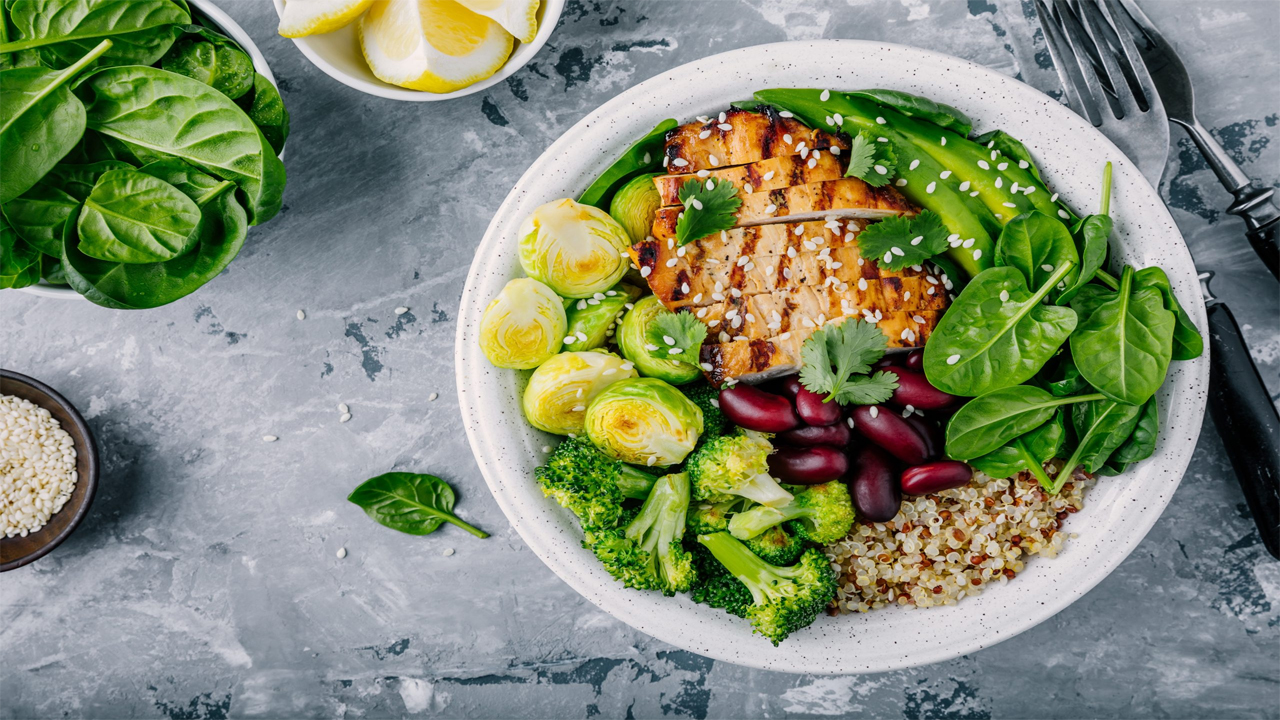High blood pressure or hypertension influences more than a billion people around the world; truth be told, the number of individuals with hypertension have multiplied over the past 40 years which is genuinely worrisome since hypertension is connected to higher risk conditions, like coronary heart diseases, kidney failure, and stroke.
As diet is suspected to play a significant part in the improvement of high blood pressure, researchers have designed specific dietary strategies to help reduce it.
What exactly is the DASH diet?
Dietary Approaches to Stop Hypertension, or DASH, is an eating regimen prescribed for individuals who need to avoid or treat hypertension and diminish their risk of coronary disease. The eating regimen was made after researchers saw that hypertension was significantly less common in individuals who consume a plant-based diet hence the DASH diet accentuates consuming foods like fruits and vegetables along with some lean protein like chicken, fish, and beans while being low in red meat, salt, added sugars, and fat.
Studies suggest that one of the fundamental reasons individuals with hypertension can benefit from this routine is on the grounds that it decreases the salt intake.
What does the DASH diet comprise of?
The foods that one should consume and not consume so as to ensure that their blood pressure stays under control are as below:
- Whole Grains - Whole grains are rich in fiber which studies have shown, helps in decreasing both the systolic and diastolic blood pressure levels. Hence, swapping refined grains for whole grains would be a better bet. Examples are whole wheat and its products, brown rice, bulgur wheat, quinoa, and oats.
- Vegetables and Fruits - Since vegetables and fruits are good sources of fiber and potassium, they help in eliminating excess sodium from the body, thus maintaining blood pressure under normal levels. Typically all vegetables and fruits are allowed in the DASH diet.
- Dairy Products - Choose no fat or low-fat dairy items as regular whole fat milk and its products are high in saturated fat and sodium which again would be the cause of elevated blood pressure levels.
- Proteins – Consuming vegetarian sources of proteins like pulses, legumes, soy, and low-fat dairy products is permitted in the DASH diet as proteins are essential for our body growth and development. But since all non-vegetarian sources have good amounts of saturated fats, consuming them for long might become one of the causes of heart ailments. Thus, choosing lean protein sources like lean chicken and egg is better. Also, since fish has omega - 3 fatty acids, it helps in avoiding the clogging of the arteries thus ensuring smooth movement of the blood without causing a strain on the heart.
Anti-clogging properties of Omega-3 fatty acids
- Nuts, Seeds, and Legumes – These are loaded with antioxidants and anti-inflammatory compounds, which help boost the natural defenses of the body thus protecting cells from oxidative damage which inturn helps in maintaining healthy blood circulation throughout the body. Examples of these are almonds, peanuts, sunflower seeds, flaxseeds, kidney beans, and lentils.
- Fats and Oils - Cooking with vegetable oils like olive oil, canola oil and limiting the admission of foods high in saturated fats like fatty meats, full-fat dairy, and hydrogenated oils is a better pick since these oils have heart-healthy monounsaturated and polyunsaturated fats which can help in lowering the cholesterol levels and in turn, the risk of heart disease and stroke.
- White Sugars - Limit your admission of foods high in sugars, similar to soda, sweets, and candies as they are empty calories which lead to overweight and obesity which again is one of the major risk factors for heart diseases.
- Sodium - One of the most important things while on a DASH diet is to reduce the intake of sodium or salt in the diet to help keep the blood pressure levels in check.
- Packaged foods - Since the ready to eat foods, packaged and processed foods are loaded with sodium with the objective to preserve them, consumption of these foods will definitely lead to an elevation in the blood pressure levels. Hence, avoiding these foods completely is the best you can do for your heart health.
- Liquid - Sticking to low-calorie drinks like water, light tea and black coffee apart from fresh fruit juice is the best one can do for the body as less consumption of liquids might lead to the blood becoming concentrated with different components eg. sodium. Thus consuming appropriate amounts of fluids daily helps in flushing excess sodium out of the body thus maintaining normal blood pressure.
All in all, the DASH diet fundamentally calls for consuming fresh foods and avoiding any packaged foods. DASH diet is a good way to reduce the risk of heart diseases, maintain normal blood pressure levels, and aid in weight loss as well.
So in any case, if you have hypertension or figure out that you might be sensitive to salt, the DASH diet is your answer!

 Studies suggest that one of the fundamental reasons individuals with hypertension can benefit from this routine is on the grounds that it decreases the salt intake.
Studies suggest that one of the fundamental reasons individuals with hypertension can benefit from this routine is on the grounds that it decreases the salt intake. 

















.jpg)















